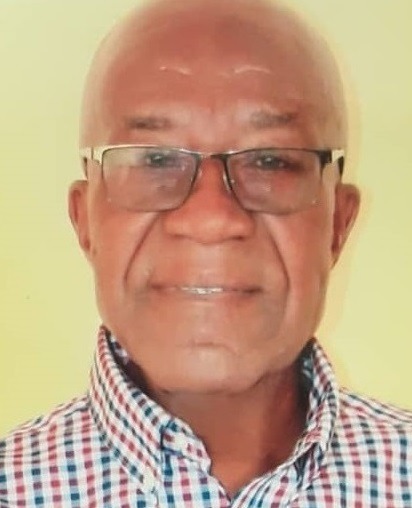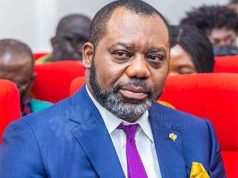By Ken Bediako
Looks like our current football generation are reluctant to celebrate the nation’s rich football legacy for reasons difficult to guess.
England’s only FIFA World Cup triumph was way back 1966 but they cherish it so much and never cease to remind us at every World Cup that “Football will return home” soon.
We all witnessed the huge historical rhapsody during Sir Bobby Charlton’s funeral that showcased his exploits during England’s 1966 World Cup triumph.
Bobby Charlton’s memorial ceremony provided a magnificent sporting atmosphere for the good of the game of football. Exceptionally splendid if you ask me. Definitely the current generation of English players would be highly motivated and inspired to play the game to the highest level to achieve global fame.
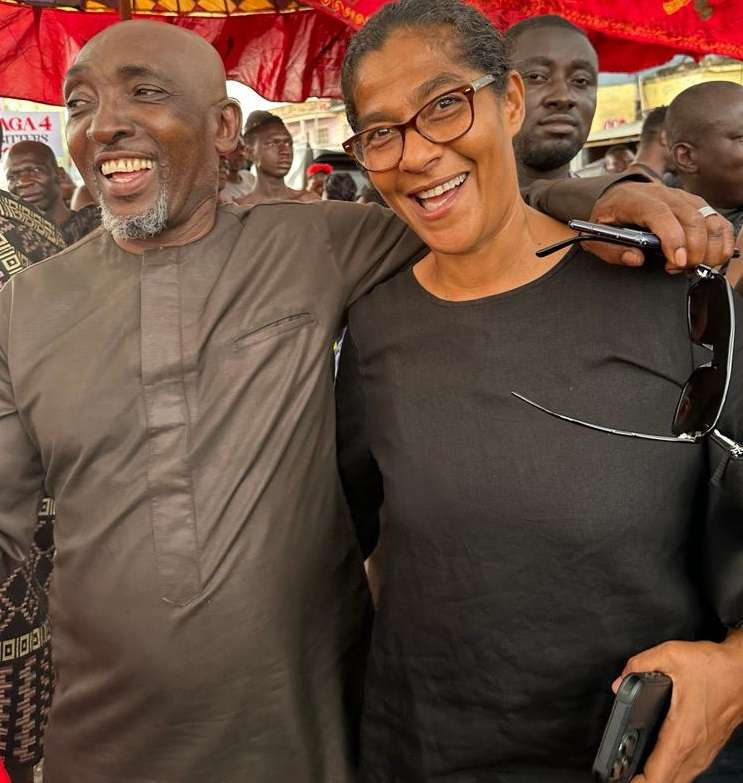
What do we see in this dear nation of ours?
It’s exactly 60 years this month when the Black Stars won the Afcon in front of a packed Accra Stadium (Dec1 1963). This was a victory that began a football revolution in the country. The Black Stars shone brilliantly across Africa. Two years later in 1965 they retained the Cup in Tunis beating the host nation in the final.
Still shining brightest, the Black Stars reached the Cup final of the next back to back Afcons in Ethiopia 1968 and Sudan 1970 making four back to back cup final appearances. Unfortunately, they lost the last two finals but in sum it was an enviable record.
Perhaps it was this double agony that broke the nerves of the Black Stars and it had to take eight years of trial and error to reach the top once again. And the Black Stars really reached the pinnacle in grand style. It started in the mid-70s when
The military Head of State, Kutu Acheampong, took personal interest in the development of sports generally. Investment in football especially, was big.
Kutu had earlier in 1975 invested in talented professional boxer David Kotey Poison who eventually won the World featherweight boxing title in Los Angeles USA, beating Reuben Olivares of Mexico.
Encouraged by this success, the Black Stars were also given enormous national support. At one stage club football was given back seat. No club in Africa. The focus was on Black Stars and 1978 Afcon. Hectic preparations all over. Twice the Black Stars undertook training tour of Brazil, arguably the world’s best football nation.
You could see the team was trenchant by 1978 and their Cup final 2-0 victory over Uganda did not surprise football analysts.
It was this victory that gave Ghana the right to keep forever the original African Cup.
It was also the victory that earned Ghana the accolade, “Brazil of Africa.”
Brazil had earlier in 1970 won the original Jules Rimet Cup for keeps beating Italy 4-1 in Mexico.
Contrary to expectations the Black Stars suddenly flopped in the 1980 defence of the title in Nigeria. Observers believe this may be due to certain unfulfilled promises made to the Black Stars after the 1978 triumph. Sudden political changes in the country that saw Flt Lt Rawlings as head of state, changed the mood in the Black Stars camp. The team surprisingly bounced back in style in Libya 1982 to win the Afcon title a record four times at the time.
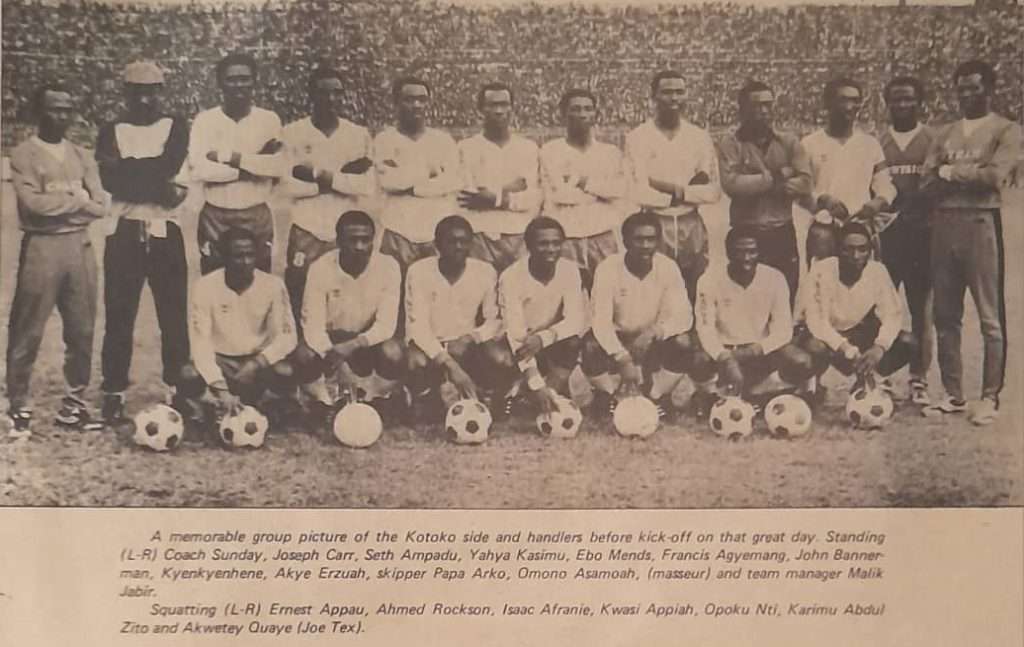
Regrettably, this enviable record has long been shattered into smithereens by Egypt and Cameroon. Indeed, our best since Libya 1982 has been three abortive cup finals against Cote D’Ivoire and Egypt. The fact is taking into consideration Ghana’s own high standards, our Afcon record for the past 40 years is nothing to write home about. I however hold that this is no fault of Aggrey Fynn and his pace setters of 1963. They hit the road running and need to be celebrated. This will in no small way surely motivate the modern day attention seeking footballers that their achievements would be given the due recognition in future. With the next Afcon just around the corner and the African Games in tow, the time is ideal to remember the past heroes and seek their spiritual blessings for the tasks ahead.
The records show that there are only four survivors from the 1963 pioneers who set the ball rolling.
The living now are Wilberforce Mfum, Kofi Pare, Leonard Acquah and Osei Kofi.
Strictly speaking Osei Kofi then 23-year-old teenager was named as standby and the history books make him a member all right.
Incidentally it was this Osei Kofi, the dribbling wizard, who inspired the 1965 squad, led by Addo Odametey, to retain the Cup in Tunisia.
Another historic event that calls for celebration is Asante Kotoko’s second Africa Cup triumph in 1983, exactly 40 years ago.
This was at the Baba Yara Stadium on Dec 11 at the expense of close rivals, Al Ahly of Egypt. It was an interesting scenario. The two teams were meeting back to back for the second year running.
In the 1982 finals, Al Ahly whipped Kotoko 3-0 in Cairo and drew the second leg at the Baba Yara Stadium to win the cup.
This time round, in 1983, Kotoko had fought a goalless battle in the first leg in Cairo and needed any narrow scorecard to carry the trophy in the Kumasi final.
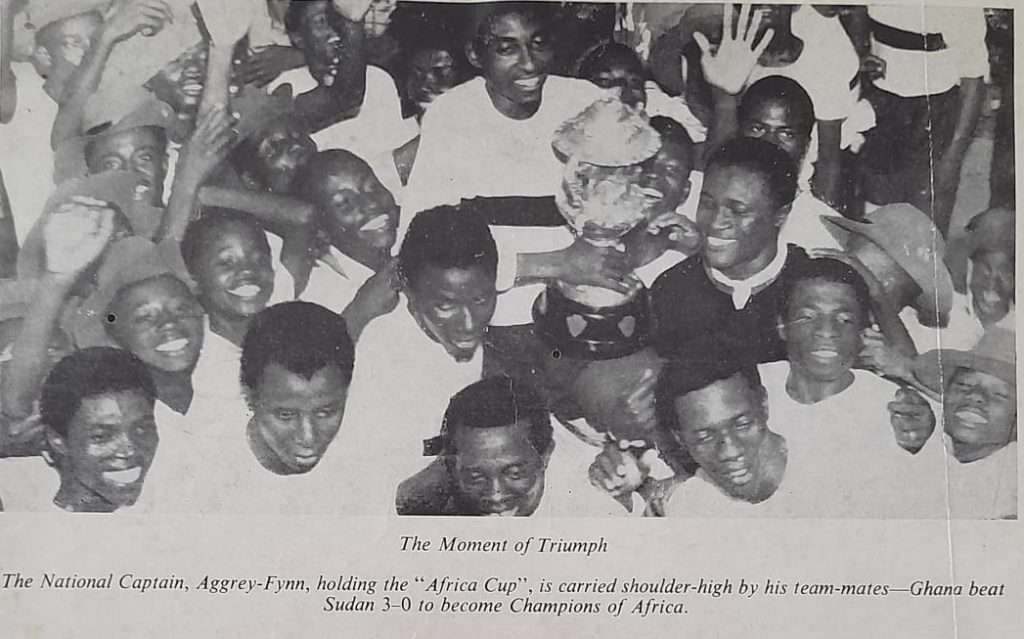
True to prediction Kotoko went all out on the day and scored as early as the 21st minute that turned out to be the match winner.
It was a perfect cross from adroit dribbler John Bannerman on the right flank to midfield general Opoku Nti who made no mistake about it.
This was a spectacular victory by all standards that needs to be celebrated by the Porcupine family.
By irony of fate, the fantastic skipper Papa Arko, who led his troops to this great victory, passed into glory just a fortnight ago it was one of those sudden deaths Papa Arko was seen exchanging pleasantries at the recent funeral of former first lady Theresa Kufuor held at the Heroes Park at Baba Yara Stadium. He was even captured chatting with Sabine Kyei the pretty daughter of Dr Brobbey Kyei, medical officer in charge of Kotoko when Papa Arko was captain. Indeed, a historic picture of the pair was captured by Mr Poku Kyei, younger brother of Dr Brobbey Kyei.
In a tribute to Papa Arko last week I recalled the unprecedented tumultuous atmosphere in Kumasi after Kotoko’s great victory on Dec 11 1983.
Reaction from readers’ demand recount of the actual match proceedings.
On that note let me provide one of the reports compiled in the club’s official mouthpiece, KOTOKO WEEKLY which I edited at the time.
Here we go:
KOTOKO CHAMPS AGAIN
At long last the battle has ended. After 12 long years of fruitless search for the golden fleece the dream of Kumasi Asante Kotoko has come true.
Once again Africa is at the feet of Kotoko and Ghana football is the richer for it.
On their way to inscribing their names in gold letters. Joseph Carr was agile and fast improving Ernest Appau was his usual cool and collected self; Kwasi Appiah was good at close marking; Seth Ampadu was a tower of strength. Kwadwo Addai Kyenkyenhene was unbeatable in his long strides; Papa Arko was majestically marvellous; John Bannerman gave the game a touch of grace. Yahya Kassum was “Mr Butcher” of the match, Ebo Mends was unlucky with an early injury; Opoku Nti was the lone goal hero; Isaac Afranie had a quiet time while substitute Francis Agyemang and Joe Tex had the opportunity to attach their names to the glory. It looked like there had been no curfew in the city of Kumasi 24 hours before the match. The atmosphere had been nothing short of a carnival and from the look of things after the glorious victory the PNDC would have to declare at least three days of curfew free period for the celebrations.
Kotoko had to win the match at all costs.
The crowd was there in their thousands ready to die to cheer up Kotoko in this crucial final of finals.
Asante Kotoko are the proud champions of Africa again. But if you ask Papa Arko and his colleagues they will confess that perhaps they have never been through such 90 minutes of desperate football in which every minute mattered.
In the second half for instance, El Ahly ceaselessly pressurised Kotoko so much so that the entire team had to fall back to defend the one goal lead which turned out to be the winner. The remaining minutes were pure “torture football” and Kotoko deserve congratulations for their brave refusal to surrender.
When the referee’s final whistle went the crowd went mad with joy.
It was the first time in history that this cup has been won. under their very noses.
In fact, the jubilation was so great and emotional that even the security personnel looked on helpless whilst the fans enjoyed themselves inside the arena.
It took sometime before the Kotoko players could be escorted to the dais to receive the
Cup from Mrs Aanaa Ennin, member of the PNDC who represented PNDC chairman Flt Lt Rawlings and assisted by CAF President Tessema from Ethiopia.
Cheers everybody and keep loving sports.






















